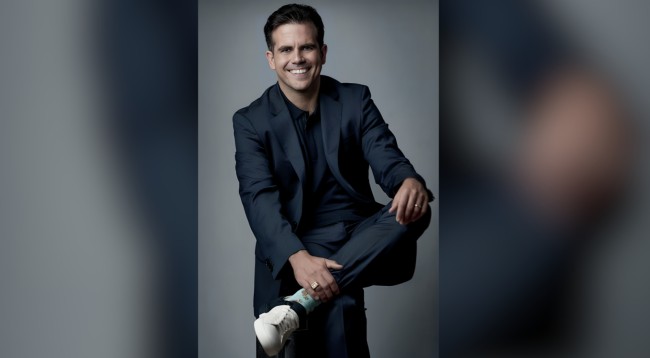
As extreme weather events become more common, optimizing recovery efforts will become a crucial task for governments. One of the biggest challenges after disasters is the cooperation between opposing political factions.
For all the damage and destruction they bring, disasters can offer brief glimpses into how public service could work if public servants could simply work together.
Governor Ricardo Rossello, author of the new book The Reformer’s Dilemma and the Need for a Radical Middle, became intimately familiar with this dynamic when Hurricane Maria struck Puerto Rico in 2017, killing 3,000 citizens and destroying the island’s infrastructure.
In his book, Rossello recounts his experience working with President Donald Trump, a relationship that garnered worldwide media attention as Rossello attempted to remain pragmatic and effective while dealing with a man with “the best political instincts of anyone I’ve ever come in contact with.”
In a situation where Puerto Rico “regressed to the early nineteenth century”, the most important thing Governor Rossello could do was get along with Trump. Rossello describes him as a man who “knows no in-betweens.
Either you were with him, or you were against him.” The former Governor won praise for his ability to manage Trump’s political calculations and win significant aid for the island.
Along with being the former Governor of Puerto Rico, Dr. Ricardo Rossello has a PhD in Bioengineering and Biotechnology. He is the Chief Visionary Officer for the Regenerative Medicine Institution (RMI HEALTH), conducting scientific research into stem cells and longevity.
He won office with promises to approach government scientifically, prioritizing facts, data, and research in crafting solutions to complex problems.
Governor Rossello believes that the best way for governments to help people is to hear from them directly. But the truth is, most public servants would rather not hear from the public all that often.
And who can blame them, really, with the inflamed rhetoric being hurled at them at town halls and on social media platforms? But Rossello reminds us that this is the essential task of government – hearing, specifically, how they can help the public.
In a chapter of his book called Democracy 3.0, the former Governor of Puerto Rico encourages the advancement of “civic technology,” with which citizens can engage with governments and communities.
“You can use these tools for mapping public issues, generating solutions, gathering input for government decisions, and facilitating community coordination.”
Rossello gives the examples of Open 31 and SeeClickFix, allowing citizens to report non-emergencies like potholes, graffiti, and a broader range of community issues. He believes that tech can still be wielded for one of its original purposes – providing simpler ways to get things done in government.
“Civic tech promotes transparency, accountability, and participation, empowering citizens and strengthening democracy,” says Rossello. “Technology can bridge the gap between periodic electoral participation and continuous citizen engagement.”
Rossello envisions these tech tools creating a space “unaffected by the fluctuations of electoral politics.” He sees an urgent need for effective long-term planning to find its way through the weeds of short-term, election-cycle policy decisions that are endemic to democracies worldwide.
“Embedding this concept of future planning within democracies is crucial. I believe the radical middle, with its core principles, ideally positions itself to implement these essential changes for the next phase of democracy.”
Rossello remains in politics as an elected Congressional Delegate for the Commonwealth of Puerto Rico. He hopes his book can be part of a nationwide push for more “reason” and less “radical” in our political institutions.
